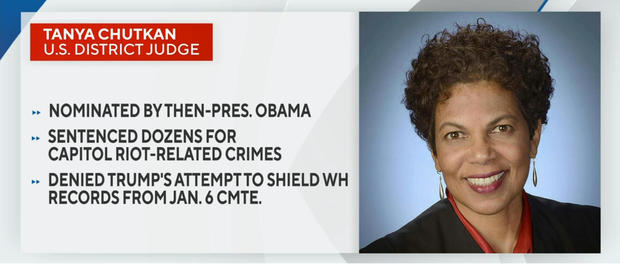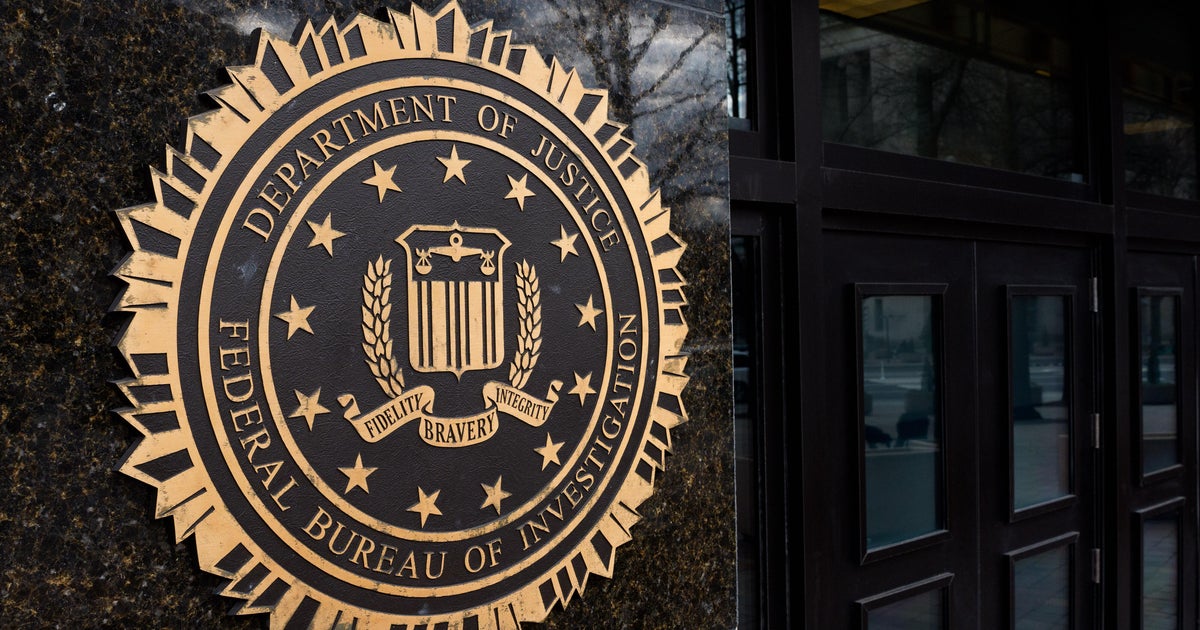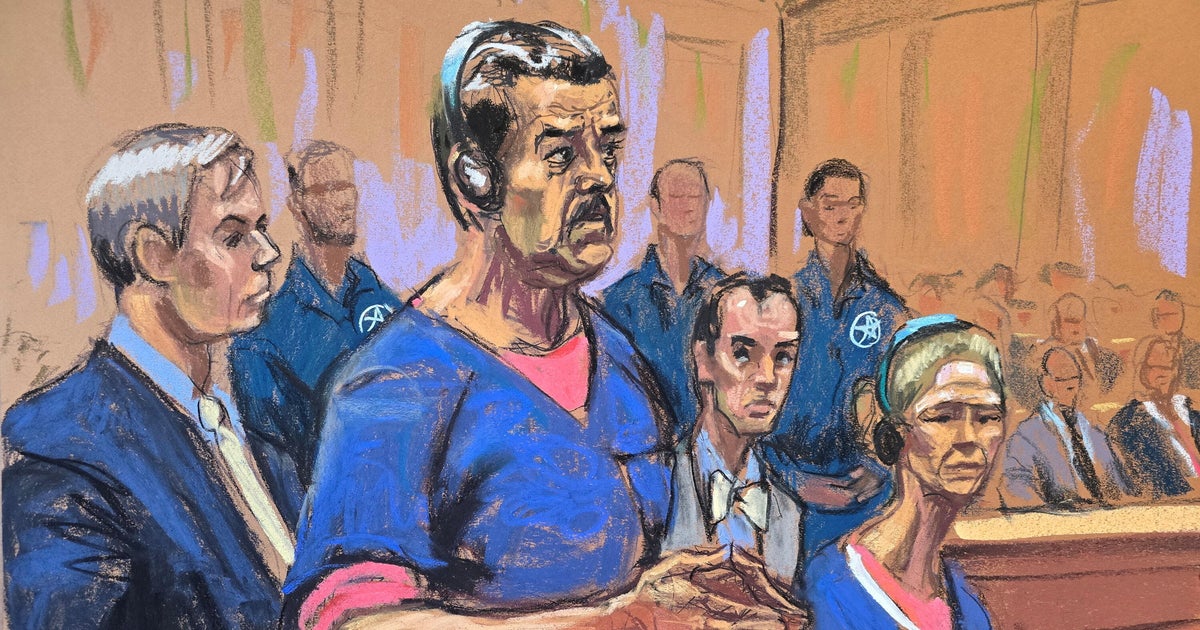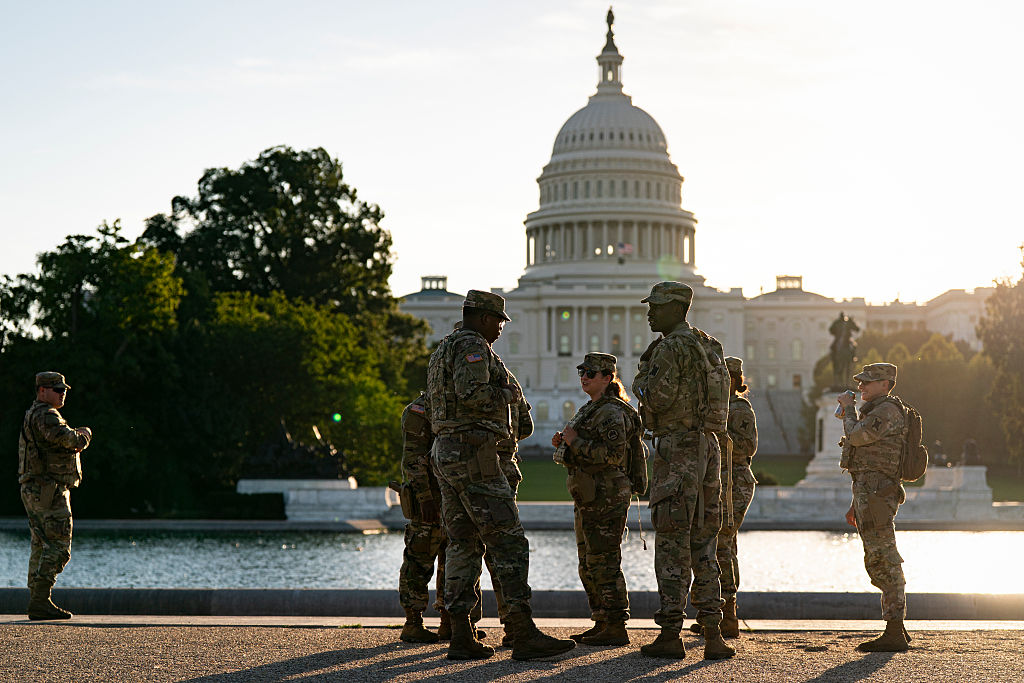What to know about Tanya Chutkan, the judge randomly assigned to Trump's Jan. 6 case
Washington — Less than 24 hours after special counsel Jack Smith's indictment of former President Donald Trump landed on her docket, U.S. District Court Judge Tanya Chutkan told an attorney in an unrelated matter that she hadn't slept since she received the assignment.
"Please be safe," the attorney said to her Wednesday morning.
"I'll try," the judge responded in open court, later quipping that she is trying to keep her calendar open "in case I can get out of town, which is increasingly looking like a good idea."
The Trump case, related to his alleged efforts to remain in power following his loss in the 2020 election, is not Chutkan's first encounter with his legal battles concerning the events around the Jan. 6, 2021, attack on the Capitol. In 2021, she denied Trump's attempt to shield his White House records from the House select committee that investigated the Jan. 6 attack, ruling the former president did not have the power to prevent the disclosure.
"Presidents are not kings, and Plaintiff is not President," she wrote of Trump.
Chutkan has overseen several of the cases related to the Jan. 6 assault. In nearly all cases stemming from the riot that have led to convictions, D.C. federal judges have opted to either sentence defendants at or below the guideline ranges. In at least two cases, Chutkan has bucked the trend, exceeding prosecutors' recommendations and sentencing individuals to more severe penalties than suggested, according to a review of court cases by CBS News.
"This was no exercise of First Amendment rights. It was a violent attempt to overthrow the government," she said of the Capitol attack in one sentencing hearing.
"They were mad that their guy lost," she said in another. "The people who mobbed that Capitol were there in fealty and loyalty to one man. Not the Constitution."
Born in Jamaica in 1962, she attended George Washington University in the nation's capital and later earned her law degree at the University of Pennsylvania. For over a decade, Chutkan worked for the Washington, D.C., public defender and tried over 30 cases, according to her biography on the court's website. She then went into private practice.
President Barack Obama nominated her to the federal bench in 2014. She was confirmed by a vote of 95-0 in the Senate.
The random process for assigning cases
A single computer inside a first-floor office in the fluorescent-lit, gray hallway of the courthouse near Capitol Hill likely placed Trump's four-count indictment in Chutkan's courtroom.
The clerk's office at the U.S. District Court for the District of Columbia is home to the "wheel" for federal cases in Washington, a computerized random selection process that assigns new cases to any of the 22 federal district judges who preside in Washington.
The device, which a court official says only functions to assign cases, is a modern-day spin on an old way to allocate cases. In prior years in federal courthouses across the country, a clerk would manually select from a wooden wheel that held cards with the names of the court's judges.
The jurists who preside over Washington's federal courthouse grapple with a variety of complex and at times politically polarizing cases, ranging from civil matters like Freedom of Information Act lawsuits, to the more than 1,000 cases stemming from the Jan. 6 attack.
Chutkan is no stranger to those prosecutions. She is one of several judges who have expressed alarm about an ongoing peril to democracy after Jan. 6 and the denialism of the 2020 election results. During the August 2022 sentencing of defendant Ben Larocca, Chutkan warned that "our democracy continues to be vulnerable and at risk."
In December 2021, Chutkan sentenced Robert Scott Palmer to more than five years in prison after he admitted to attacking officers during the Capitol breach with a wooden plank and the contents of a fire extinguisher. At the time, it was the longest sentence imposed in the sprawling investigation.
"None of us are the worst things we've ever done," Chutkan advised Palmer. "I hope you continue to consider other sources of information as you go forward."





